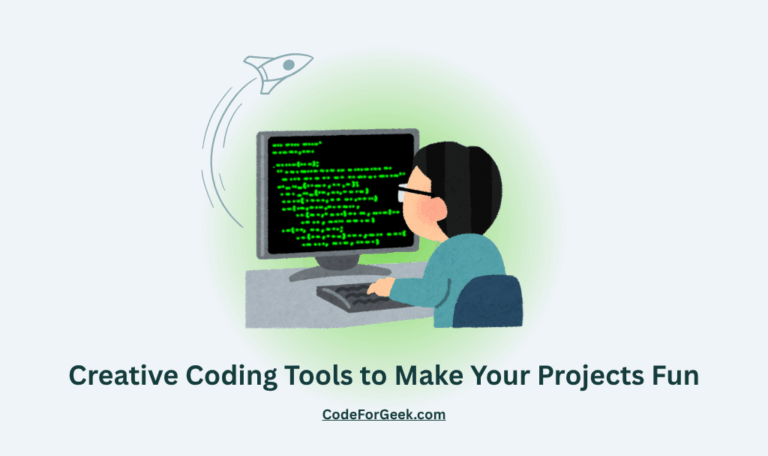New to Rust? Grab our free Rust for Beginners eBook Get it free →
My Top AI Extensions for VS Code (Sorted by Price & License)

As developers, we all use some AI extensions for VS Code. These AI coding extensions boost our productivity and improve our coding speed.
But unlike AI chatbots, AI browsers, or AI agents that flood our feeds with marketing, most VS Code AI extensions quietly exist in the background, mainly because their creators don’t have big marketing budgets. They rarely get the spotlight, buried deep in the marketplace, and are almost impossible to discover unless you spend hours searching manually.
Well, that’s exactly what I did. I have spent hours digging through the VS Code Marketplace, Reddit discussions, and GitHub repos to find the tools that are actually good and useful.
I want to highlight the amazing work their creators are doing. My goal is for this article to reach them as a “thank you” and to help other devs find the perfect tool for their workflow.
I have sorted this list into three categories: Open Source, Free, and Partially Free (Freemium).
The Open-Source Champions 🏆
These tools are for developers who value transparency, control, and the ability to self-host or use local models.
1. Continue Dev
Continue.dev describes itself as the “open-source autopilot for software development.”
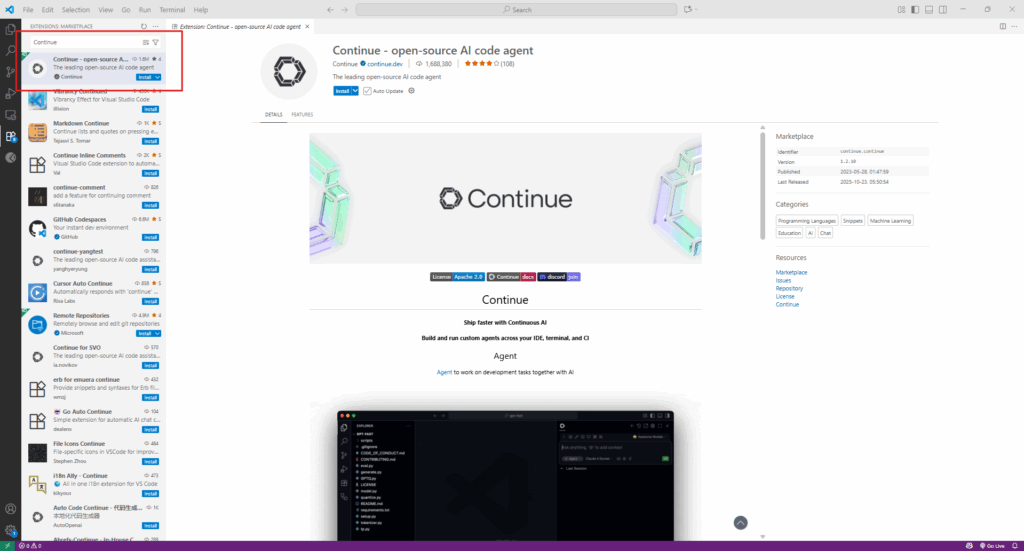
What I love about it is that it’s a “bring your own model” system. You can plug in local models via Ollama or LM Studio, or connect to APIs from OpenAI, Anthropic, Mistral, and more. It gives you an in-IDE “IDE agent” that has the full context of your codebase and terminal. This is the best tool for creating a personalised AI assistant.
2. twinny
I found twinny through its GitHub repository, and it’s a true community-driven project. It’s a free, open-source AI extension designed to be simple, clean, and effective.
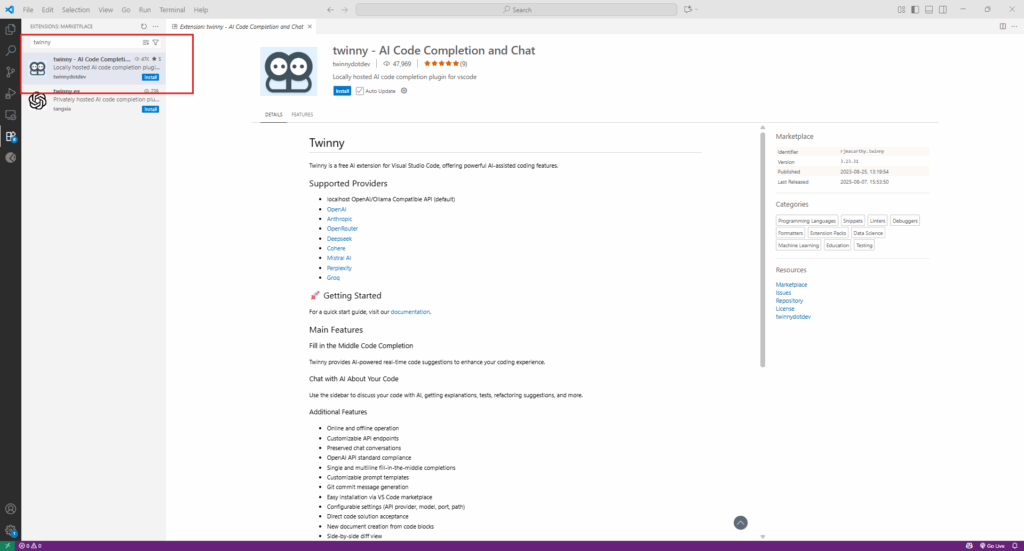
The main draw for me is its commitment to being a self-hostable, local-first solution. It’s perfect for developers who are (rightfully) concerned about privacy and don’t want their code sent to a third-party server. It supports various local AI backends and gives you the core AI autocomplete features without any of the cost or privacy trade-offs.
3. Aider
This one is a bit different and incredibly powerful. Aider isn’t just an extension; it’s an “AI pair programmer” that runs directly in your terminal.
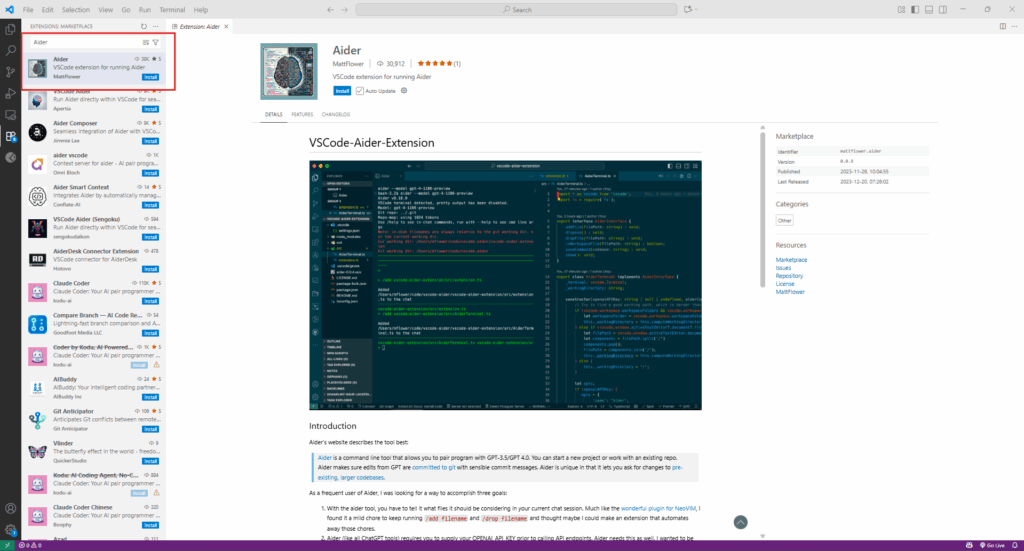
You work with Aider by chatting with it in your command line. You give it a task like “add a new endpoint” or “fix this bug” and it will edit the code in your local files directly. Its official site tracks its performance on a “polyglot benchmark,” showing how capable it is at making changes across multiple languages. It’s a completely different workflow, and for complex, repo-wide tasks, it feels like magic.
The Free Powerhouses 🚀
These tools are closed-source but offer an incredible amount of value for free, making them the perfect entry point for any developer.
1. Windsurf (formerly Codeium)
This tool, which many (including me) first knew as Codeium, is probably the most popular and powerful free alternative to GitHub Copilot. Its official site calls it “the most intuitive AI coding experience.”
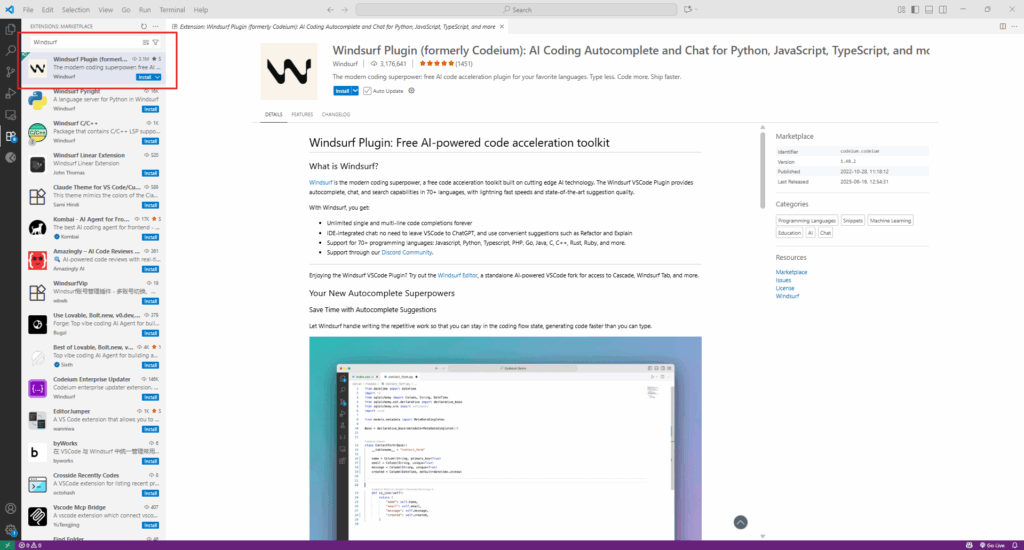
It provides lightning-fast autocomplete and a very capable chat assistant. But its real power comes from its advanced agent, “Cascade,” which can “understand your intent and handle complex codebases.” For an individual developer, the fact that this is offered for free is simply amazing.
2. Phind
This tool has saved me so much time on research. Phind is an “AI-powered search engine for developers.”
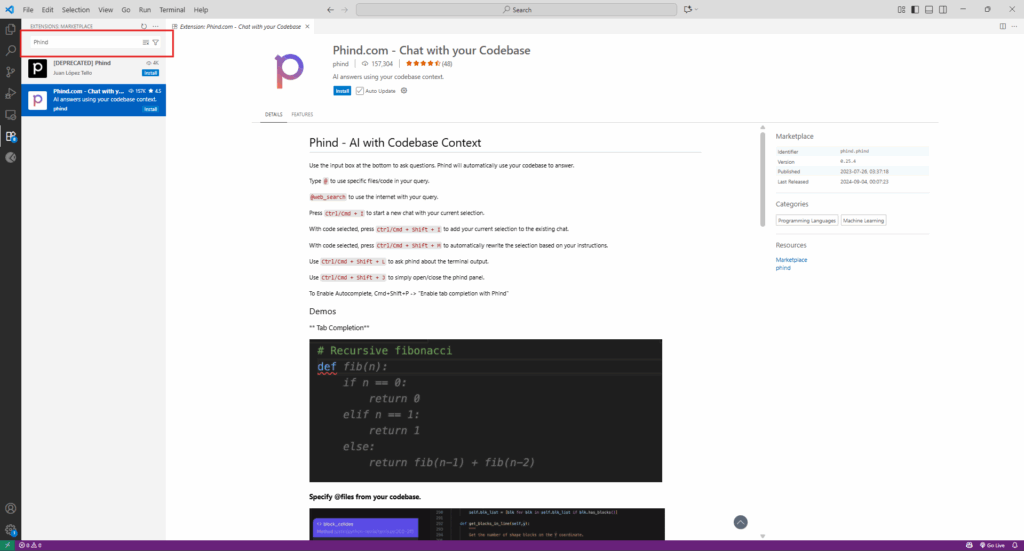
Instead of just giving you links like Google, Phind gives you a “rich, visual, and interactive answer” with complete code snippets and a summary of its sources. The VS Code extension brings this capability right into your editor, so you can highlight a piece of code or an error message and ask Phind, “What does this mean?” or “How do I fix this?” It’s like having Stack Overflow and a senior dev built into one.
3. Pieces for Developers
This extension solved a problem I didn’t know I had. Pieces is an “AI-powered snippet manager” that its creators call a “long term memory for your whole workstream.”
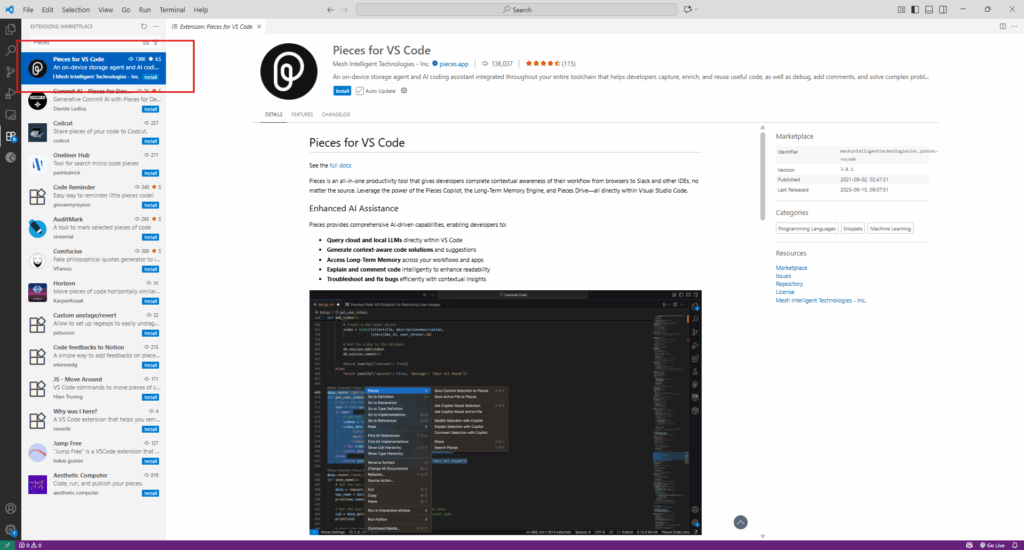
It’s not about writing new code; it’s about managing the code you’ve already seen or written. You can save any code snippet (and its context) with one click. Pieces then uses AI to auto-categorize it, add tags, and make it searchable. The best part? Its site states that it “runs on-device,” making it “fast, secure, and air-gapped from the cloud.”
4. Sourcery
If you’re obsessed with code quality, you need to install Sourcery right now. This is an “AI code reviewer” that scans your code for improvements.
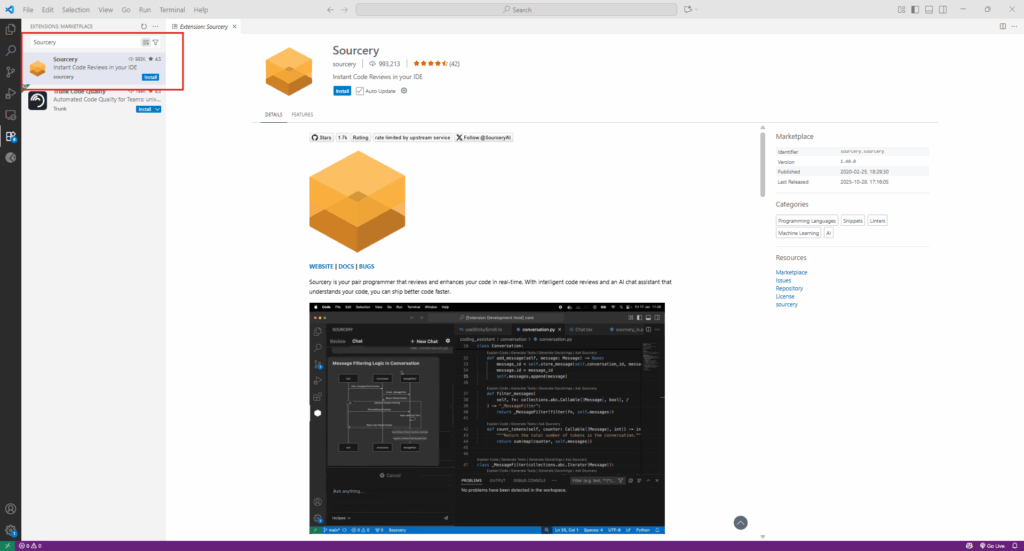
Its GitHub Marketplace page says it provides “Instant AI code reviews” to “improve your code quality.” It works by looking at your code and suggesting refactors for clarity, performance, and correctness. It’s like having a meticulous senior dev review every line you write. Its Pro plan is free for all open-source projects, which is a fantastic gesture to the community.
5. Extract.ai
I have to give a special shout-out to this community-built tool I found. Created by Reddit user miltonian3, Extract.ai is a small, smart utility with a very specific job.
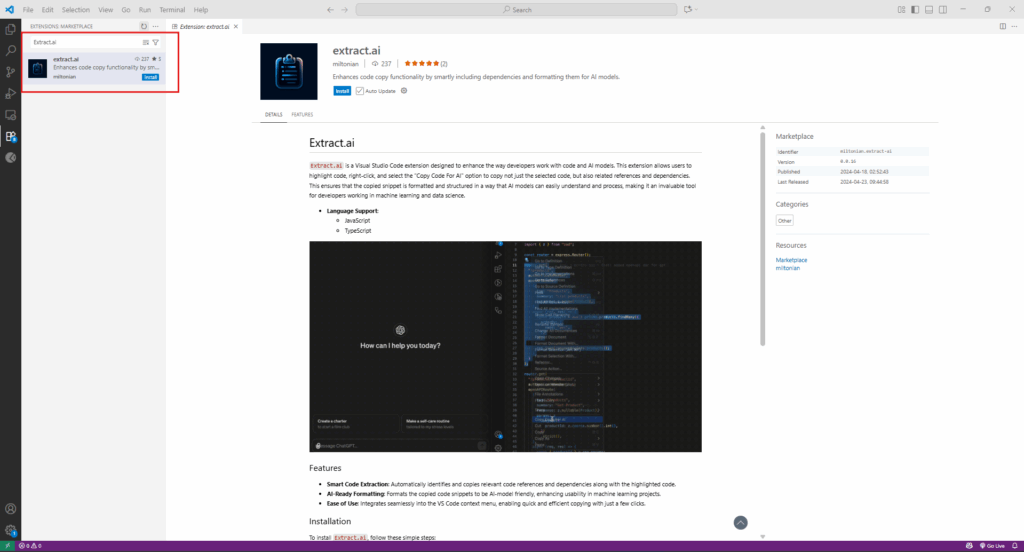
As the creator described it, the tool “enhances code copy functionality by smartly including dependencies and formatting them for AI models.” This is perfect for when you’re copying a function to paste into ChatGPT or Claude and you forget to include the relevant class definitions or imports. It’s a simple, brilliant idea that solves a common frustration.
The Freemium & Pro Tools 🌟
These are the industry heavy-hitters. They are paid products but often have a limited free tier or offer free access to certain groups.
1. GitHub Copilot
This is the one that started it all. GitHub Copilot is the “AI pair programmer” that changed the game. Powered by OpenAI’s models, its autocompletion is industry-leading.
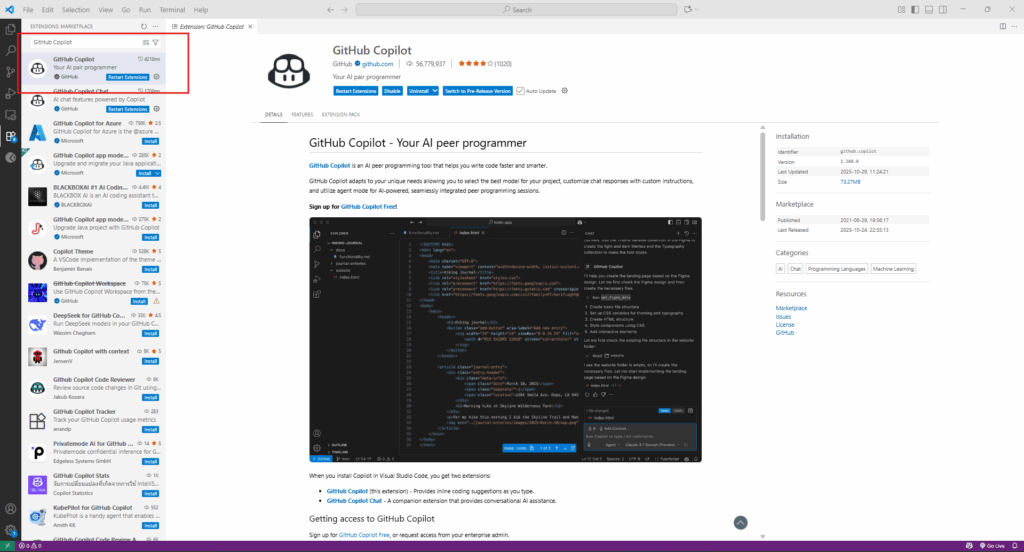
With the new “Copilot Chat” and the upcoming “Agent HQ,” it’s evolving from a simple autocomplete into a full-fledged coding assistant that you can talk to. It’s a paid subscription, but I always make sure to tell people that it is 100% free for verified students, teachers, and maintainers of popular open-source projects.
2. TabNine
TabNine is one of “the original AI code assistants” and has always focused on personalization and privacy.
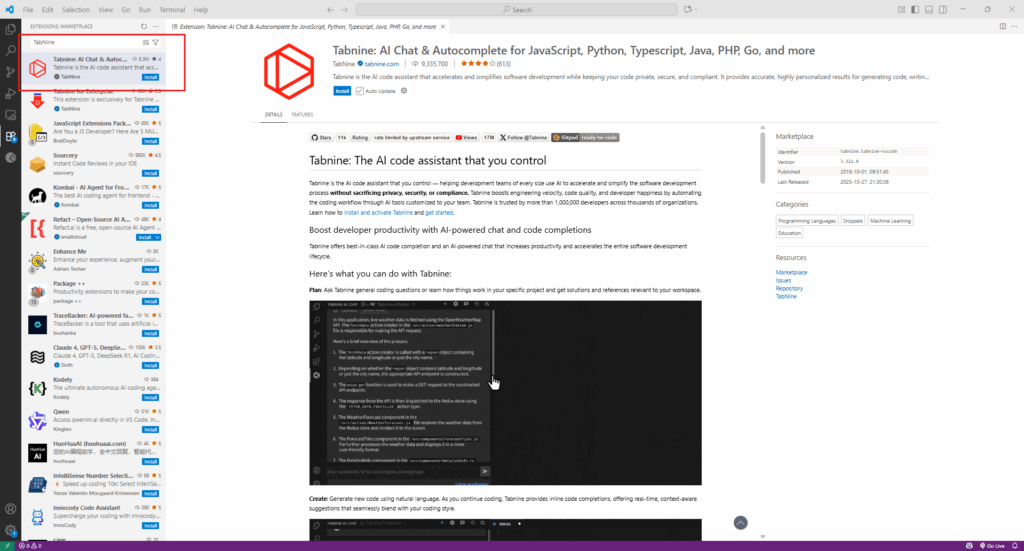
Its key differentiator is that it can be trained on your specific repositories (GitHub, GitLab, etc.) to provide “personalized” suggestions that match your coding style and conventions. Furthermore, as its website highlights, TabNine is “the AI code assistant that you control” and can be deployed in “air-gapped environments” or run fully locally, which is a massive win for enterprises that can’t have their code leaving their servers.
3. AI Genie
I’m including this one as a nod to a great community tool. As noted in the original discussion, AI Genie seems to be abandoned or no longer maintained, but its core idea was fantastic.
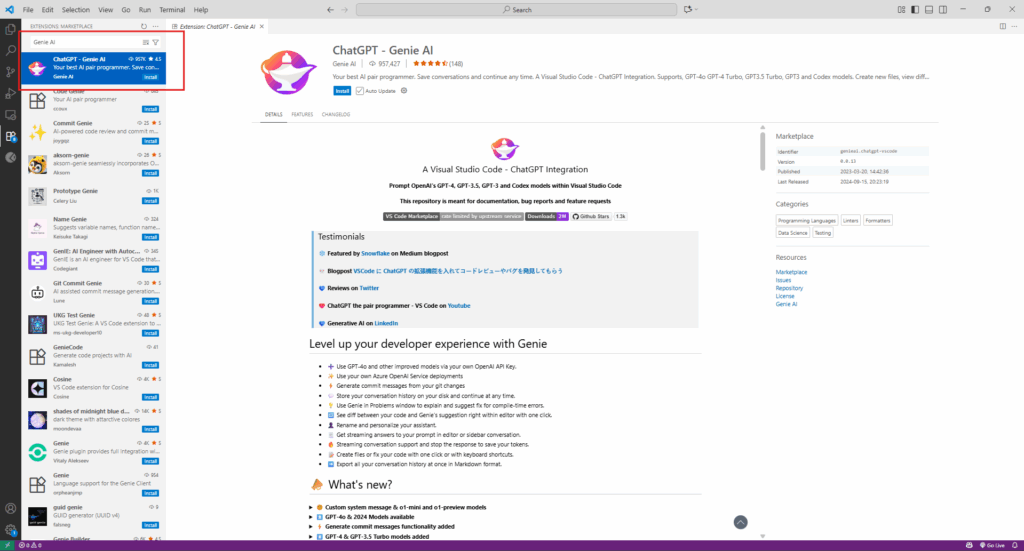
It was a free extension that let you bring your own API key (e.g., for OpenAI) and create “custom right-click actions” and “ad-hoc prompts.” You could, for example, highlight code and have a custom prompt to “Convert this to a TypeScript interface” or “Add JSDoc comments.” It gave the user all the power. I hope another tool picks up this mantle of ultimate customizability.
My Final Thoughts
That’s my list! The AI coding space is moving faster than anything I’ve ever seen in tech. I hope this article helps you find a new tool to supercharge your workflow.
And to the creators of these extensions: thank you. Your work is genuinely changing how we build software, and I, for one, am incredibly grateful.

